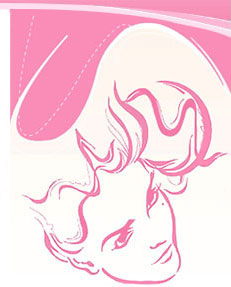|
Sexuality
& Menopause
|
|
![]()
|
For some women, but by no means
all, menopause brings a decrease in sexual activity. Reduced hormone
levels cause subtle changes in the genital tissues and are thought
to be linked also to a decline in sexual interest. Lower estrogen
levels decrease the blood supply to the vagina and the nerves and
glands surrounding it. This makes delicate tissues thinner, drier,
and less able to produce secretions to comfortably lubricate before
and during intercourse. Avoiding sex is not necessary, however.
Estrogen creams and oral estrogen can restore secretions and tissue
elasticity. Water-soluble lubricants can also help. |

|
|
Ask a Doctor? |
|
|
FAQ's |
|
|
News |
|
|
Contact Us |
|
an excuse to stop sex completely after years of disinterest. Many
physicians, however, question if declining interest is the cause
or the result of less frequent intercourse. Some women actually
feel liberated after menopause and report an increased interest
in sex. They say they feel relieved that pregnancy is no longer
a worry. Sexuality in Menopause: Finding Your Sexual Energy and Truth Do you remember the first time you fell in love? Chances are, you
thought you had discovered the moon and the stars. The lyrics to
songs seemed to be written about you. And you probably didn’t
even think about eating or sleeping. When a woman falls in love,
she experiences an almost-overwhelming influx of energy, filling
her with exhilaration, benevolence, vigor creativity, and often
insatiable sexual desire. Sexual Problems at Midlife It is a common misconception that sexual desire and activity inevitably
decrease at menopause. Although this is true for some women, it
certainly doesn’t have to be the truth for all. What we believe
about sexuality at menopause has a lot to do with our sexual expectations
and experience. And many women who are in the process of negotiating
how to tap into their source energy at midlife notice a decrease
in sexual desire. In one study 86 percent of women reported some
form of sexual dysfunction, usually in the form of loss of sexual
desire, often associated with vaginal dryness, dyspareunia (pain
during intercourse), vaginismus (painful spasms in the vaginal muscles),
loss of clitoral sensation, and touch sensation impairment. Perimenopause and Your Sex Life Many of the following midlife changes in sexual function have been associated with normal perimenopause: • Increased sexual desire Our Cultural Inheritance There can be any number of cultural influences that contribute
to a woman’s inability to feel sexual during the menopause
transition. However, I believe that our patriarchal society greatly
influences how women perceive themselves at midlife and beyond.
For one thing, there is an inherent double standard with regard
to sexuality in our culture. If you don’t believe me, all you
have to do is check out the number of Internet sites that sell Viagra
to men without a prescription. (Women still cannot get birth control
pills anywhere without a prescription.) While there is no question
that Viagra can increase the quality of life for couples in which
the male partner suffers from erectile dysfunction, our culture
is quick to overlook the holistic nature of sexual function and
how profoundly it is enhanced when a couple is truly connected in
all ways. But because our patriarchal culture associates sexuality
with genitalia, it is easier to create a pill that allows men to
have reliable erections without having to connect their hearts with
their penises. |
|
About
Menopause | Symptoms & Diagnosis
| Treatment | Sexuality
& Menopause | Male Menopause
© Copyright 2003-2004 Menopause | Disclaimer | Site Credits : Pacific Interactive Pvt. Ltd. |